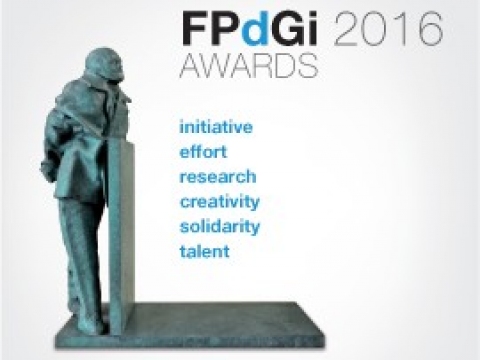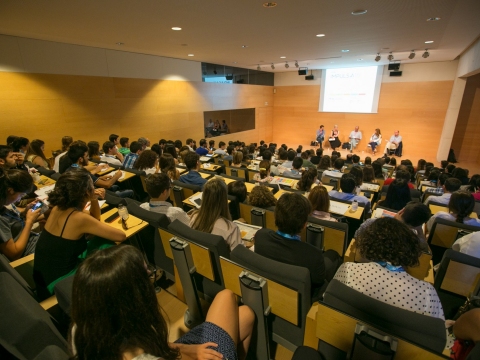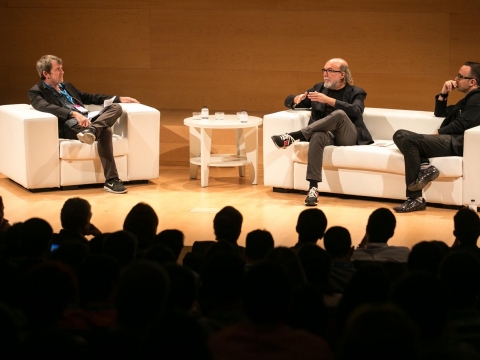JCO (Juan Carlos Ortega): Oriol, how did the FPdGi award change your life?
Oriol Mitjà: Before winning the award I made two reflections: 1) there are poor people in the world, and 2) there are enough resources in the world to prevent this. Everyone must be given access to basic services. I travelled to Papua New Guinea to work on treating skin ulcers, which many children were suffering from due to a lack of proper hygiene. I found a pill that could cure these tropical ulcers. With this discovery and the award under my arm I went to Geneva and the WHO gave me its full support, and it trusted me to eradicate the disease in a province of Papua; two years later we have done it.
JCO: Javier Agüera began doing business at the age of 8. He had to pay his first VAT at the age of 13. He even disguised himself as a member of the cleaning crew in order to gain access to the world mobile congress.
Javier Agüera: It’s not as if one morning you wake up and go and set up a business, instead you feel a restlessness that keeps growing, and naturally you see that you need more people and more resources to develop your plan. In 2012 the company employed 15 people and today there are 150 of us. We are working to make mobile phones more secure. After spending two years in San Francisco, I have now come back to run the business from Madrid, because all my contacts are here, for example in R & D, etc..
JCO: Leticia has a highly attuned sensitivity. Her current project involves leveraging the emotion that is generated when a group of people feel that heavenly calling to help with earthly problems.
Leticia Moreno: In the most recent concerts in Madrid, the opportunity arose to collaborate with UNICEF. Between the pieces we performed, I talked about the child victims of the earthquake in Nepal. The powerful language of music can break down barriers and motivate and people to become passionate about working to build a better world. During the concert, in this fast-paced, stressful world, the audience are transported back to their dreams, to their hopes and desires, and they can feel inspired to collaborate with causes like those of UNICEF.
In places like this auditorium a great deal of energy is concentrated. On receiving the award you look back and you realise that your work and your life’s journey has meaning. Classical music is something that absorbs you and it seems that you cannot see anything else beyond it. Until then I had only participated in other people’s projects. The FPdGi award was a turning point, and I launched my first personal project: to rescue part of our cultural heritage. The Spanish repertoire for the violin is quite unknown, even in Spain. I realised that there were some incredible gems to share with the world, so I got in touch with Deustche Gramophone, I spoke to the BBVA Foundation, and the record was released on to the market: it has been very successful and I have taken it on tour.
JCO: Felipe, tell us about what Itaca does.
Felipe Campos: Itaca is the island of dreams. The award put Torrassa in l’Hospitalet de Llobregat on the map. There are many organisations which, quite anonymously, are fighting to guarantee rights and generate opportunities for children, young people and families. Addressing child poverty is everybody’s responsibility. Childhood is becoming shorter and shorter; because of the crisis children have had to grow up sooner. We need to tackle the root of the problem: the work-life balance, so that children are not left alone. We are fortunate because we have the trust of many adults who ask us to look after their children. Together we want to change the world.






 Top
Top